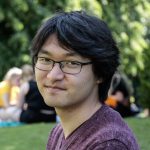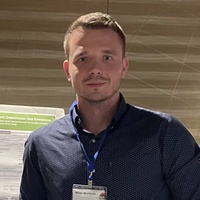9.00-9.45
Coffee & Networking
9.45-10.00
10:00-11:30 Parallel Workshops

Aaron Hirtenstein is Co-operative Business Advisor at Co-operate Scotland and Community Lead at LocalGov Drupal. Aaron supports co-ops and open source projects to work better together, with a focus on governance, strategy, and community building. He works with organisations across tech, food, and the public sector.

Maria Young is the Accessibility Lead at Agile Collective, a worker co-op building websites and digital tools for positive social impact.

Jordan Autumn Brown is a member of Very Evil Demons, a worker-owned games studio reimagining how collaborative, ethical game development can work.

Chris Connelly is a founder and engineer at Digital Society, a not-for-profit co-operative building digital product for social good.

Dr Paul Harvey, Lecturer of low-carbon and sustainable computing, University of Glasgow

Dr Ryo Yanagida, Research Associate, University of Glasgow
11.40-12.30

Michael Gardiner is the Digital Development Specialist and AI Innovation Lead for South of Scotland Enterprise.

Aaron Hirtenstein is Co-operative Business Advisor at Co-operate Scotland and Community Lead at LocalGov Drupal. Aaron supports co-ops and open source projects to work better together, with a focus on governance, strategy, and community building. He works with organisations across tech, food, and the public sector.
Scott Hurrell is a Senior Lecturer in HRM and Employment Relations at University of Glasgow’s Adam Smith Business School whose research includes social media in the workplace, labour market trends and skills devleopment.

Sally Johnston is a Glasgow-based creative producer with experience in project and events management, community engagement, and civic and environmental activism.

Milan Markovic is an Interdisciplinary Fellow at the University of Aberdeen whose research focuses on complex socio-technical systems underpinned by novel technologies such as IoT, AI, and Blockchains.